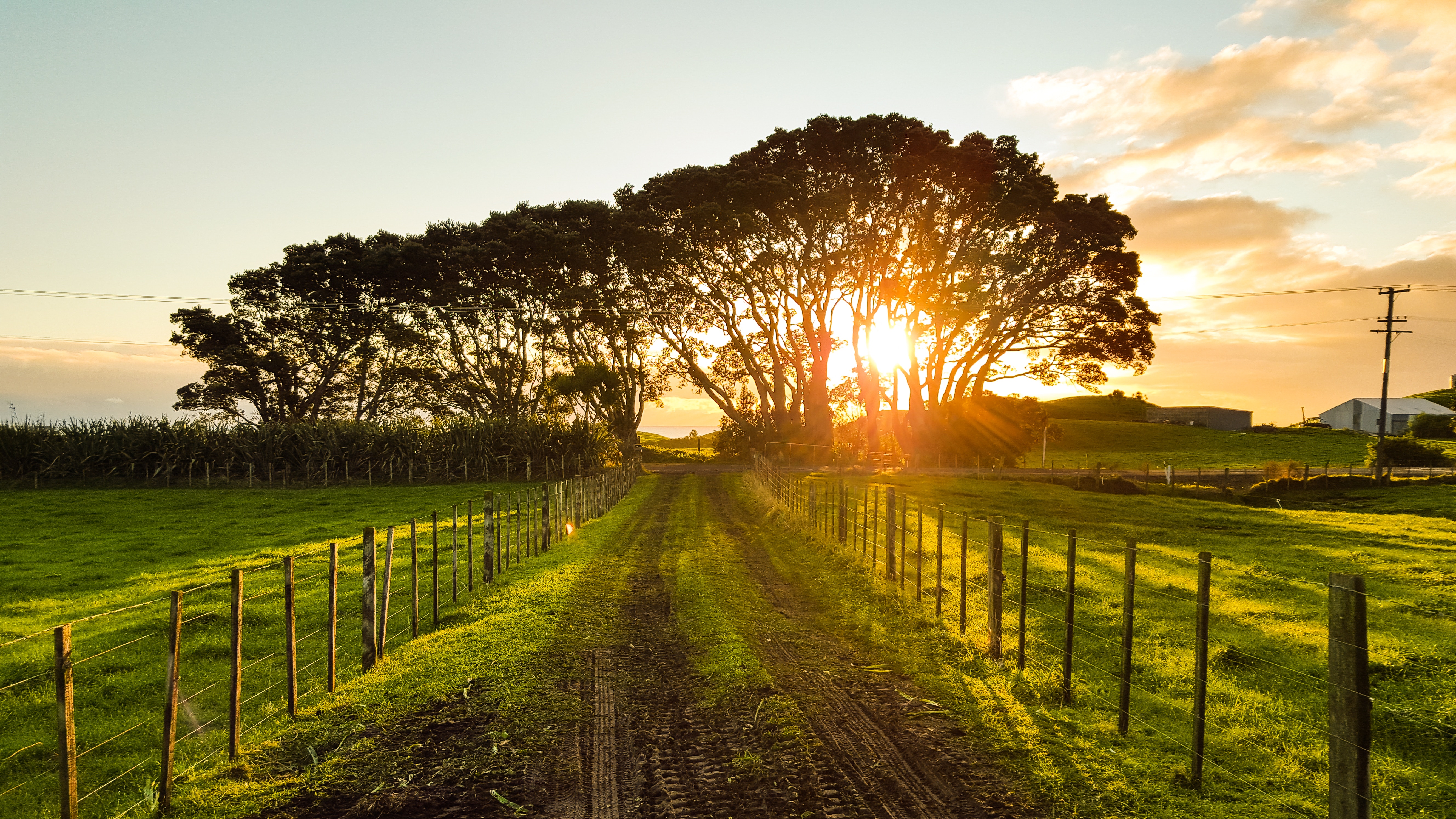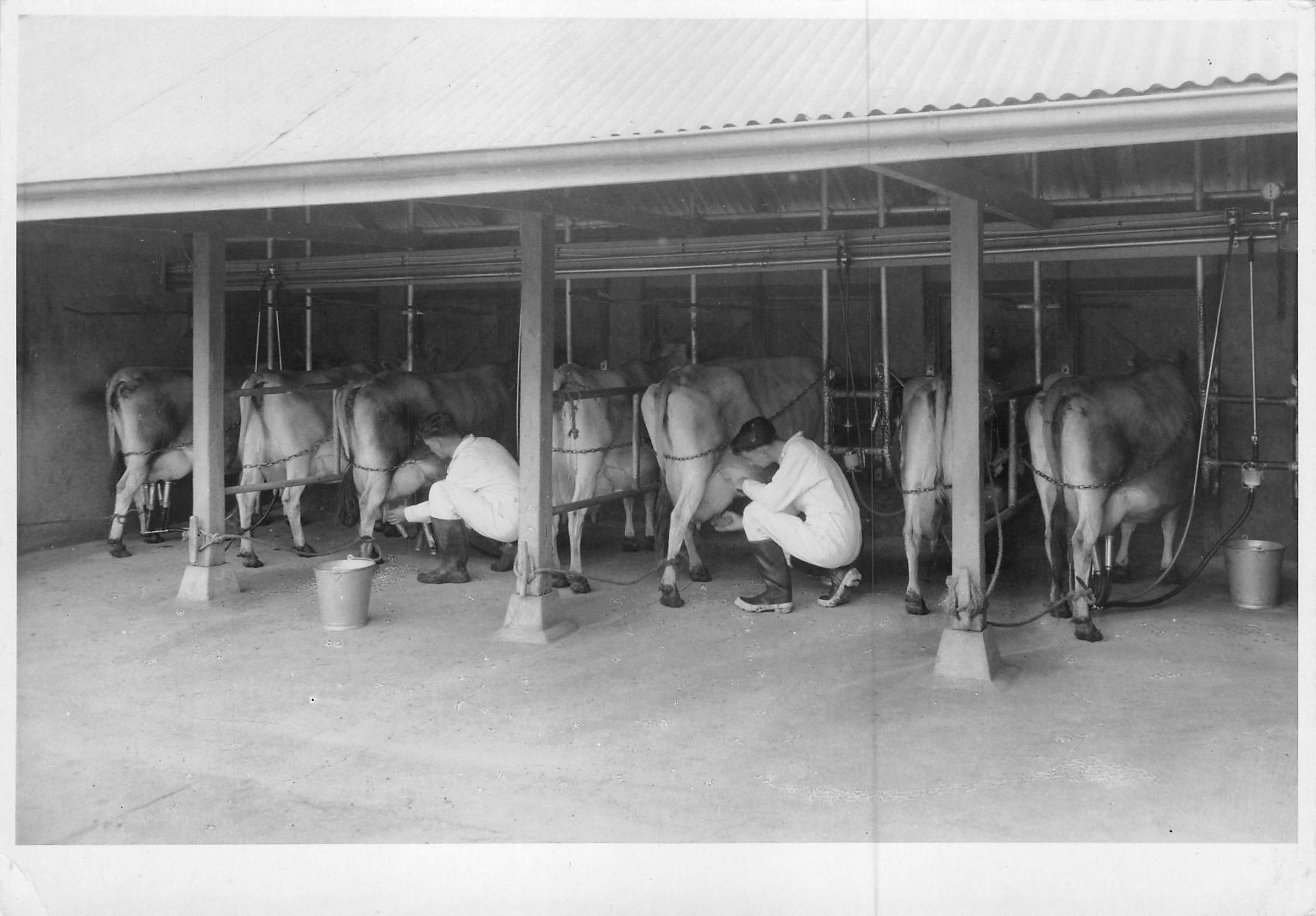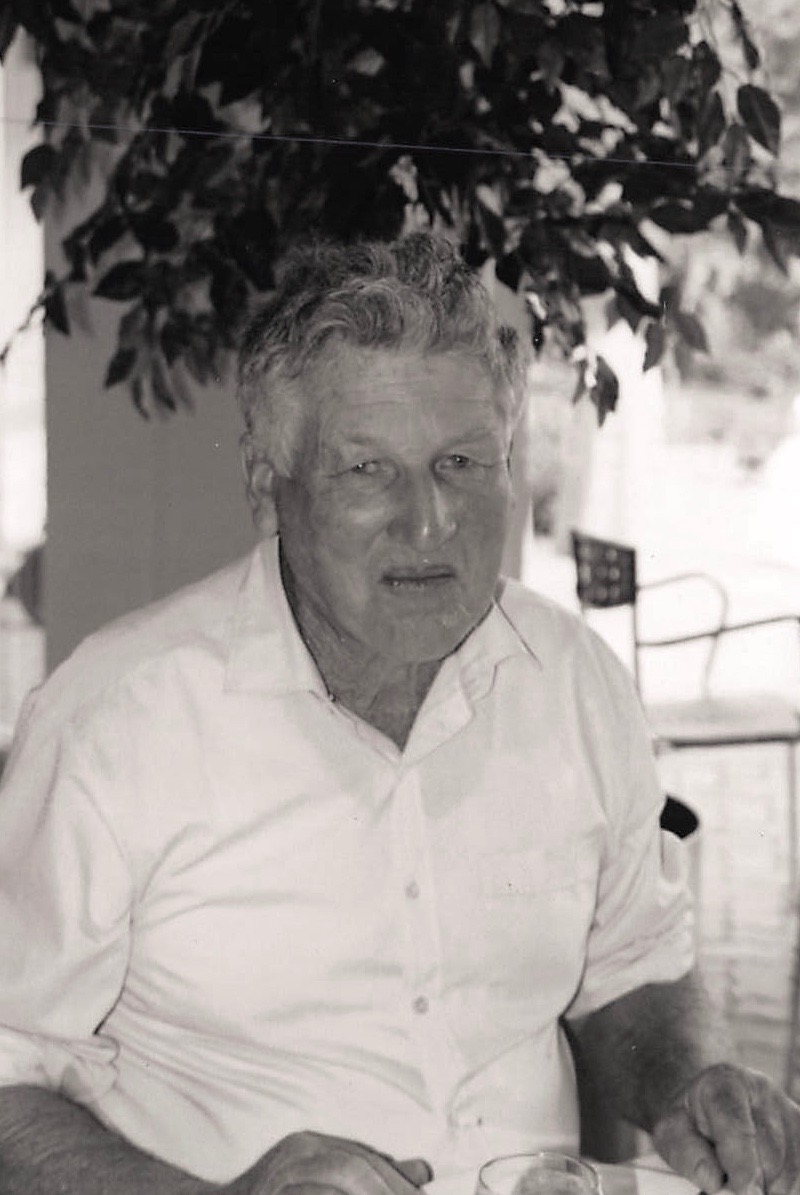Don’s Story – The Good Farmer
Donald Keith Grey was born 12 January 1930; the same year as Neil Armstrong, Warren Buffet and Clint Eastwood. It was big year for heroes. He may not have walked on the moon, become a billionaire or ever said ‘Go ahead punk, make my day’ but in the eyes of our family, Uncle Don was the biggest hero of them all.
The eldest child of Keith and Edith Grey, he was joined by 5 siblings over the next 15 years; Nancy, Bob, Ian, Allan and Elizabeth. The Greys were dairy farmers, so after attending primary school in Albion Park and a few years of high school in Wollongong, Don moved onto the family farm to work. He was 14 years old. It was this farm, ‘The Meadows’ that would become Don’s home for the next 74 years.
Uncle Don was born in to a time and place that was vastly different to that which we know today. As the oldest son, his path was mapped out for him. It was not a subject for discussion or negotiation with a career counsellor. It was just a given, he would work the farm. By the time my dad, Allan, was born in 1944, Don had already left to live at the farm with Grandma & Grandpa Grey. It was a physically demanding life but Uncle Don never considered pursuing an alternative career path. A few weeks ago, I asked him what he liked the most about being a farmer and his response was, ‘the animals.’ He knew that some of his friends from school went to work with machines at BHP and the mines but he was glad that wasn’t his lot in life – he much preferred living creatures and being outside. Which was a good thing because, for the next 70 years, his daily routine involved a lot of both.
Each day was basically the same. Up early to do the milking, back to the house for breakfast, then out to do whatever jobs needed doing around the farm; fences, feed, hay, water, lunch and the ABC news, feed the calves and then time to bring the cows in for afternoon milking. Once that was finished up, he would drive the 2km to Nanna’s house for tea and a chat, then home again. In my lifetime, I am only aware of him going to New Zealand and the Central Coast for a few days. Other than that, he never left the borders of postcode 2527.
Yet somehow his life and legacy have reached far beyond the boundaries of Albion Park.
If we were to write a resume for Uncle Don, try to condense onto a piece of paper his skills and achievements, it would be fairly brief in terms of the traditional criteria. No formal education beyond 14, no promotions, no professional development courses, no big pay packets or accolades. There are no certificates or degrees in his office (a lot of newspapers, cow breeding catalogues and back issues of ‘Your Daily Bread’), no significant material possessions (that we know about), but all of us who are gathered here know that Don’s life, his influence and his impact, far exceed anything that could be contained in a resume or simple biography.
Uncle Don was not one for bold emotive declarations, no one in the Grey family is, (my mum and my sisters and I changed all that 😉 but it was obvious to anyone who met him that he loved God, the farm, his cows and people. It didn’t matter whether you were a family member or not, you were always welcome at the farm. Uncle Don was one of the most available, accessible and accepting people I have ever met.
He was always ready for a chat, always happy to see you arrive and never in a hurry to see you go.
One of my earliest memories of Uncle Don is from when he used to babysit us during the evening. I have an enduring picture in my head of him sitting on our old couch in the lounge room, his floppy, slightly unkempt greying hair askew while my sisters and I literally climbed all over him and played hairdressers. There would be ribbons and hair ties and combs and brushes all put to work whilst he sat calmly without complaint, trying to watch the news on our black and white TV. His patience was endless.
As we got older, we would make the trip on foot across the paddocks from our house to the farm or, later on, ride our bikes with our gang of neighbourhood friends. The farm became our adventure playground. The beauty of being the uncle and not the parent meant that Uncle Don gave us a degree of freedom that would have horrified mum, had she really known what we got up to. When things came unstuck, or in the case of the tractor – stuck, he would calmly pick up a bit of baling twine or a random tool from his pocket and find a way to sort it out.
It didn’t seem to matter what Uncle Don was supposed to be doing, he would always find a way to incorporate a tractor ride, tractor driving lessons, mat surfing or calf feeding, our favourite activities, into the day. There were no obvious rules at the farm, other than close the gate if you opened it and always be kind to the animals. He was so gentle in the way that he spoke to kids, cows, neighbours, strangers – I don’t ever recall him raising his voice. The cows he called ‘pet’ or ‘old girl’ often accompanied by a gentle but firm pat on the rump. He knew everything about those cows and he even let us name them. This was the ultimate honour, except when we named a cow after ourselves and then found out later it had died. That was devastating. Uncle Don loved nature and took genuine delight in pointing out birds and reptiles that crossed our path. He was also the supreme source of local history. His memory was exceptional; the early days of Albion Park, the development of the dairy industry, the relationships between all the local families and their farms. In all of those conversations I never heard him utter a harsh word about anyone. Often there was a chuckle or that distinct twinkle in his eye, or maybe a smirk like my dad also has, but he never stooped to unkind words or gossip.
I’m not sure whether it was intentional or not but Uncle Don created a sanctuary at the farm. A place where people felt safe, unhurried and relaxed.
Whether it was the many nieces and nephews and our friends, children from the local schools and preschools or youth groups, you were always welcome. Not that I ever heard him say as much but I think Uncle Don knew that what he had at the farm was special and restorative. He was happy to share it with others. I am not sure that I have ever met anyone who lived with such a deep sense of contentment about who they were and what they were here to do. It was almost impossible to be anxious around him.
Uncle Don was a man of deep uncomplicated faith. It was as part of the community here at Albion Park Anglican Church that some of his most enduring friendships were formed. Always one to march to the beat of his own drum, even though he was half a century older than most of the other attendees, he attended the evening service. It was that congregation of predominantly young people that honoured him with a surprise 70th birthday party – he loved it!
Brian Campbell, you were a great friend to Uncle Don and your name regularly popped up in conversations that I had with him. Thank you for caring for and supporting him for so many years. He was committed to his Bible Study Group, held at the Nash’s home, each one of you meant so much to him. The Tates – you were family to him. Your consistent, faithful friendship and kindness brought a richness to his life. In the last few weeks of his life you were a regular topic of conversation. Each time he would end with the ultimate compliment, ‘they are a good family and great farmers’.
I think we assumed that Uncle Don would live forever; his heart was strong and he seemed invincible. However, in the last few years his health began to deteriorate. It felt like a cruel blow that someone who had spent their entire life outdoors doing such physical work should spend his last days totally paralysed and confined to a bed, inside. But, even in the face of what would bring out the worst in most of us, Uncle Don remained gracious, kind, grateful and interested in others.
My sister Julie and I were with him when the doctor told him that his condition was terminal and that he would never go home to the farm. After the doctor left, we asked Uncle Don if he had understood everything that the doctor had said. We were trying to assess whether he understood the gravity of what had just been shared. His only response, ‘he’s a bit of a negative fella, isn’t he?’ A week or so later one of the social workers asked him if he was sad or depressed about his situation? He almost looked confused by the question, like it had never even occurred to him that being totally paralysed because of terminal cancer would cause depression! He was as steady as the sun and as reliable as the seasons that had governed his entire working life. Uncle Don spent the last four weeks of his life in Wollongong Hospital and even there his gentleness and good humour endeared him to all the staff. They seemed to genuinely enjoy his company. It is only fitting that his last meal this side of heaven was three serves of ice cream, donated to him by the other patients in his ward. He loved dessert! In true Uncle Don fashion, as the end of his life drew near he did not complain or express anything but gratitude towards those who cared for him.
His default was always kindness.
There is a temptation to gloss over the life of someone who has died; to present the image that they were perfect. Uncle Don was certainly not perfect. He could be stubborn, frustrating and pig headed when he wanted to be and domestic duties were never high on his list of priorities. Yet, as I reflect on the impact that his life has had on mine, I am most grateful that Uncle Don modelled the unconditional love, grace and kindness of God in the midst of very ordinary and everyday experiences.
He was relentlessly patient, almost impossible to anger and very ready to laugh. He was so very comfortable with who he was that it was impossible to be anxious around him. He didn’t look for accolades or affirmation but he gently and consistently always made room for those who wanted to come and walk alongside him. He had a way of making you feel like you were the most important person in the world in that moment. It was only when you talked to other people that you realised he made all of us feel that way. He was present in each moment and gave each person he encountered the most precious gift of all, his time and attention.
You never got the impression from Uncle Don that there was somewhere else he would rather be. In the last few days of his life, as his breathing became laboured and his pain increased, he would pause in conversation and say, ‘I’m going to take a rest for a spell, why don’t you tell me a story’? That’s music to any Grey girls’ ears! Uncle Don listened, really listened. It was astounding the level of detail he remembered about the hundreds of people whose lives interacted with his.
A few people have mentioned that Uncle Don’s passing marks the end of an era. It’s true that his knowledge, experience and understanding of the dairy industry and the history of this community is irreplaceable. I believe, however, that his real legacy is to be found in what he deposited into the lives of the hundreds gathered in this room and the countless others whose lives were impacted by his. It is a legacy that we can continue; a life marked by kindness, joy, patience, unhurried friendship and uncomplicated faith.
But the fruit produced by the Holy Spirit within you is divine love in all of its varied expressions: joy that overflows, peace that subdues, patience that endures, kindness in action, a life full of virtue, faith that prevails, gentleness of heart, and, strength of spirit.
Galatians 5:22-23 (TPT)









